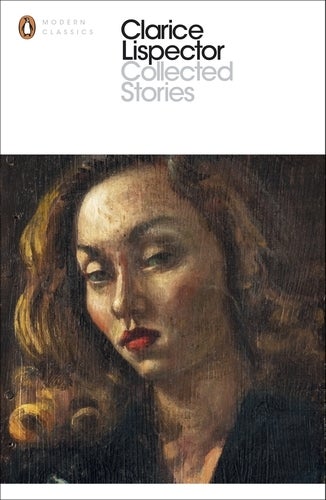Complete Stories, by Clarice Lispector, Translated by Katrina Dodson - book review
Penguin Classics - £14.99

Your support helps us to tell the story
From reproductive rights to climate change to Big Tech, The Independent is on the ground when the story is developing. Whether it's investigating the financials of Elon Musk's pro-Trump PAC or producing our latest documentary, 'The A Word', which shines a light on the American women fighting for reproductive rights, we know how important it is to parse out the facts from the messaging.
At such a critical moment in US history, we need reporters on the ground. Your donation allows us to keep sending journalists to speak to both sides of the story.
The Independent is trusted by Americans across the entire political spectrum. And unlike many other quality news outlets, we choose not to lock Americans out of our reporting and analysis with paywalls. We believe quality journalism should be available to everyone, paid for by those who can afford it.
Your support makes all the difference.Colm Toibin has called Clarice Lispector “one of the hidden geniuses of the twentieth century”. If that’s true, she was hidden in plain sight. As Benjamin Moser writes in his introduction to this collection of her stories, Lispector was a legendary grande dame of mid-century Rio, renowned for her beauty, wit and taste in chunky jewellery.
But Toibin is right that Lispector’s innovative writing has too often been overlooked in the English-speaking world. This book, which collects her short stories in sparkling new translations by Katrina Dodson, should help to change that.
Born in 1920 to a Jewish family in war-torn Ukraine, Lispector escaped to Brazil with her family, where she became a fashion journalist before launching her career as a writer of modernist fiction. Many of her stories are surreal or abstract in theme and style: “The Smallest Woman in the World”, concerns African pygmies; “Report on the Thing” is an essayistic meditation on clocks. Others are psychological studies: “The Imitation of the Rose” is a chillingly convincing account of a woman’s obsession with restoring her everyday routine after a spell in a psychiatric hospital.
The consistent theme is the circumscribed role of women in mid-century Brazil – her protagonists are often daughters, wives, or ageing widows, stifled by a conservative society. But these characters resist in myriad ways, dreaming of real love, or good sex, or intelligent conversation – just as Lispector’s remarkable prose breaks with literary convention (and even grammatical rules).
What shines through is a clarity of thought and an intensity of feeling. In an early story, “Another Couple of Drunks”, the narrator encounters a man who “kept mute… never getting excited about the chance to live.” For the protagonist, as for Clarice Lispector herself, that seems to have been the greatest crime of all.
Join our commenting forum
Join thought-provoking conversations, follow other Independent readers and see their replies
Comments